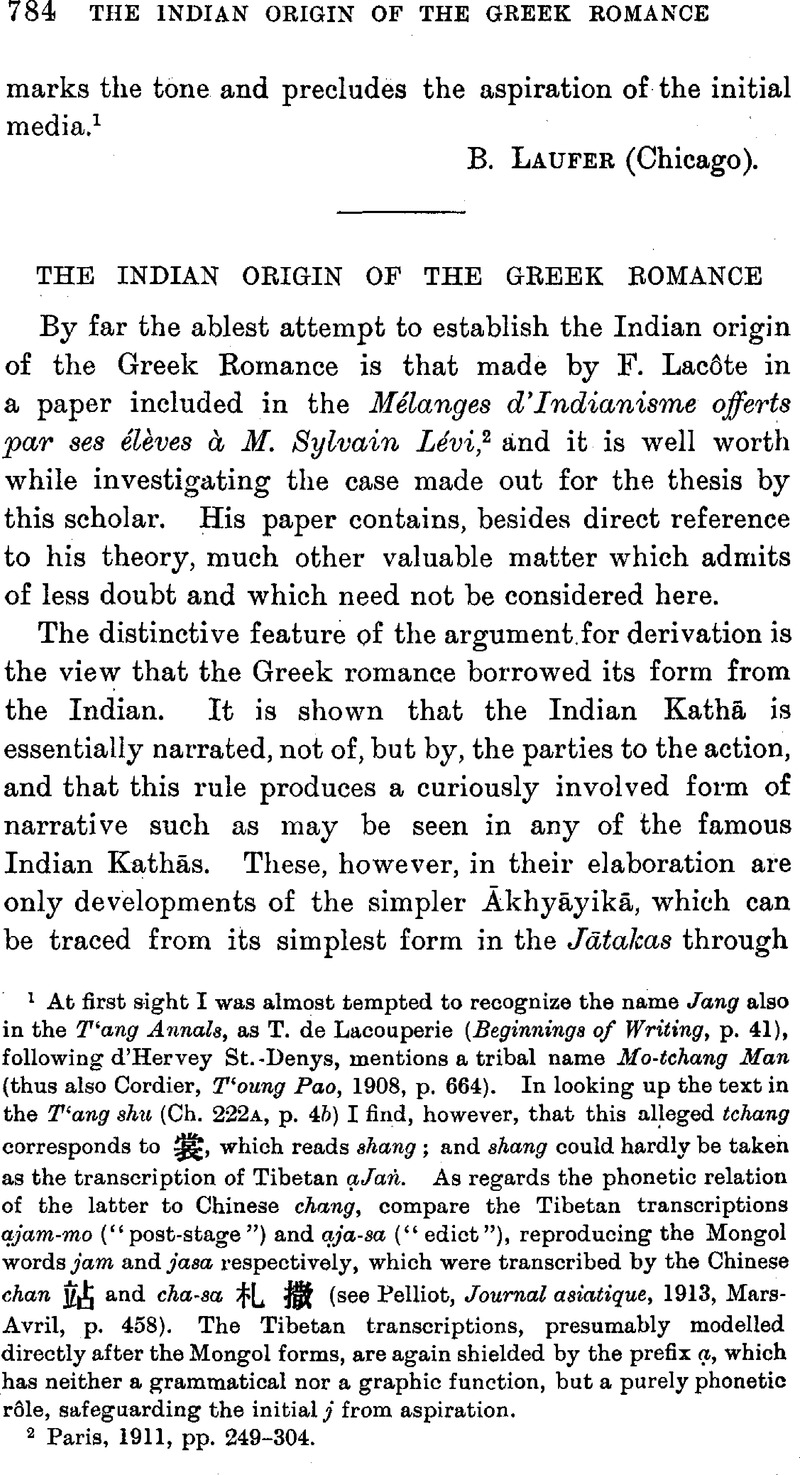No CrossRef data available.
Published online by Cambridge University Press: 15 March 2011

page 784 note 1 At first sight I was almost tempted to recognize the name Jang also in the T'ang Annals, as de Lacouperie, T. (Beginnings of Writing, p. 41)Google Scholar, following d'Hervey St.-Denys, mentions a tribal name Mo-tchang Man (thus also Cordier, , T'oung Pao, 1908, p. 664)Google Scholar. In looking up the text in the T'ang shu (Ch. 222A, p. 46)Google Scholar I find, however, that this alleged tchang corresponds to ![]() , which reads shang; and shang could hardly be taken as the transcription of Tibetan ạJaṅ. As regards the phonetic relation of the latter to Chinese chang, compare the Tibetan transcriptions ạjam-mo (“post-stage”) and ạja-sa (“edict”), reproducing the Mongol words jam and jasa respectively, which were transcribed by the Chinese chan
, which reads shang; and shang could hardly be taken as the transcription of Tibetan ạJaṅ. As regards the phonetic relation of the latter to Chinese chang, compare the Tibetan transcriptions ạjam-mo (“post-stage”) and ạja-sa (“edict”), reproducing the Mongol words jam and jasa respectively, which were transcribed by the Chinese chan ![]() and cha-sa,
and cha-sa, ![]() (see Pelliot, , Journal asiatique, 1913, Mars-Avril, p. 458)Google Scholar. The Tibetan transcriptions, presumably modelled directly after the Mongol forms, are again shielded by the prefix ạ, which has neither a grammatical nor a graphic function, but a purely phonetic rôle, safeguarding the initial j from aspiration.
(see Pelliot, , Journal asiatique, 1913, Mars-Avril, p. 458)Google Scholar. The Tibetan transcriptions, presumably modelled directly after the Mongol forms, are again shielded by the prefix ạ, which has neither a grammatical nor a graphic function, but a purely phonetic rôle, safeguarding the initial j from aspiration.
page 784 note 2 Paris, 1911, pp. 249–304.
page 785 note 1 Poetics, xxiv, 4Google Scholar; cf. iv, 5.
page 785 note 2 Speaking of the Sphinx of Ptolemaios, who lived under Hadrian.
page 786 note 1 p. 270.
page 786 note 2 Tantrākhyāyika, Einleitung, i, § 5.Google Scholar
page 787 note 1 p. 293.
page 787 note 2 p. 274.
page 787 note 3 Philologus, N.F., xx, 24 seqq.Google Scholar
page 788 note 1 Der griechische Roman2, pp. 578 seqq.Google Scholar, cf. JRAS. 1914, pp. 1103, 1104.Google Scholar
page 789 note 1 Indische Alterthumskunde, ii, 626 seqq.; iii, 87 seqq.Google Scholar